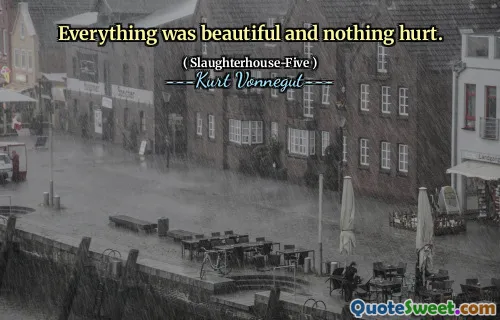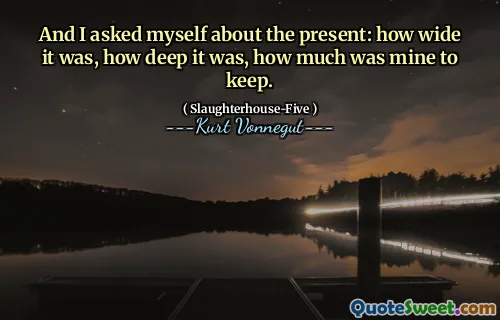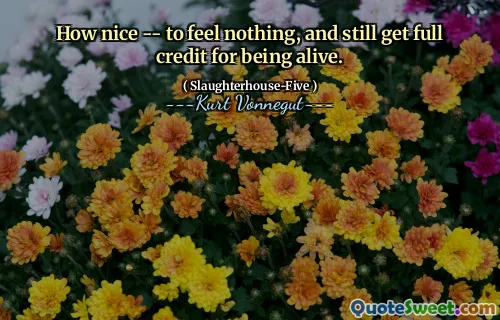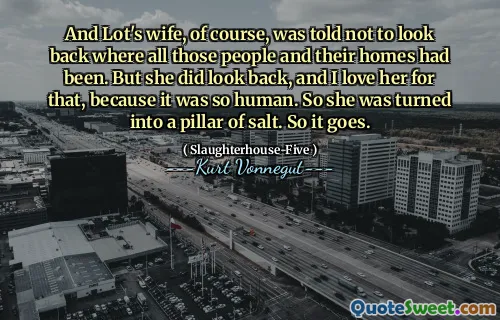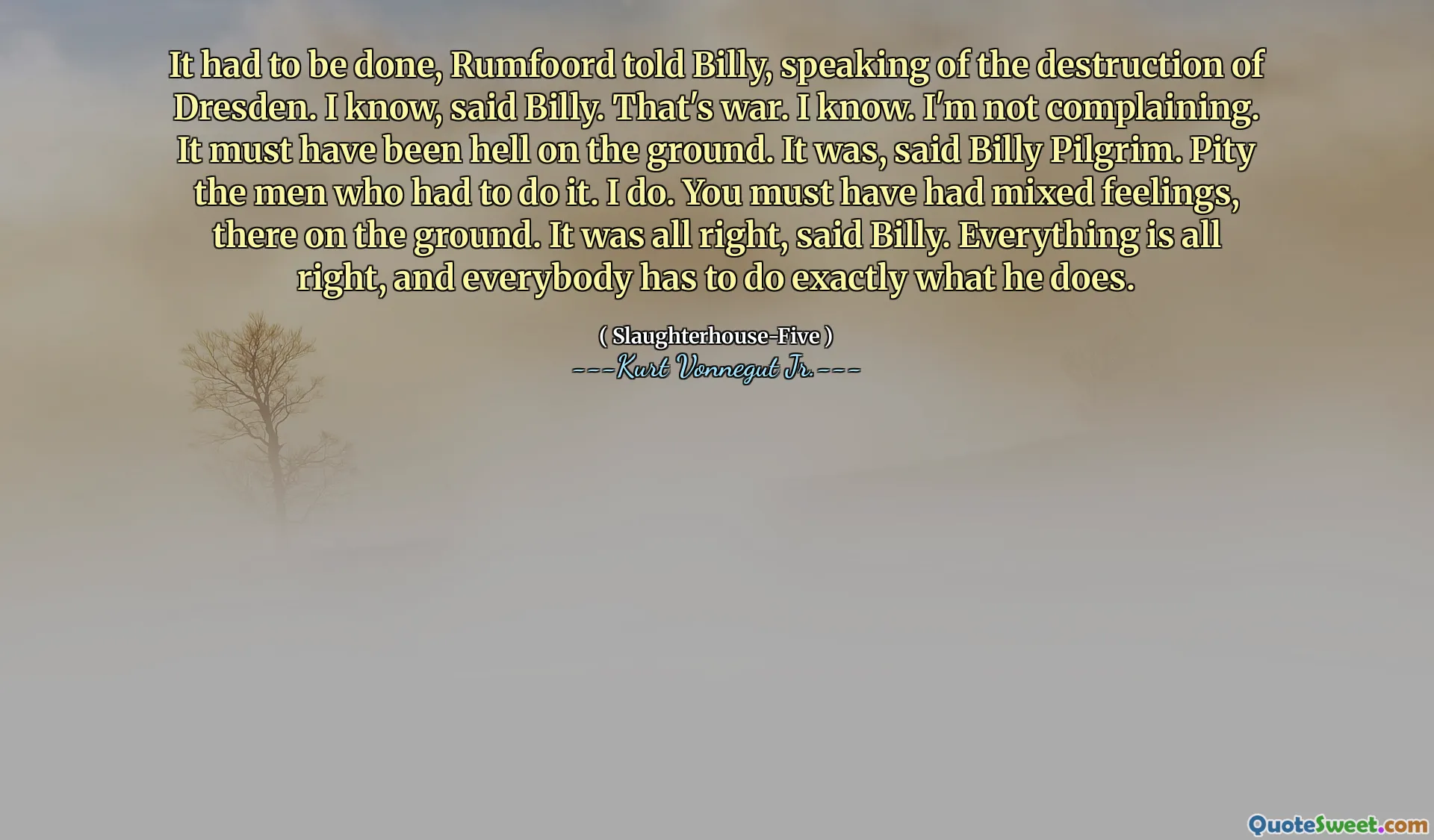
It had to be done, Rumfoord told Billy, speaking of the destruction of Dresden. I know, said Billy. That's war. I know. I'm not complaining. It must have been hell on the ground. It was, said Billy Pilgrim. Pity the men who had to do it. I do. You must have had mixed feelings, there on the ground. It was all right, said Billy. Everything is all right, and everybody has to do exactly what he does.
In "Slaughterhouse-Five," the conversation between Rumfoord and Billy Pilgrim reflects the complexities of war and its moral implications. Rumfoord acknowledges the necessity of actions taken during the destruction of Dresden, while Billy demonstrates a resigned acceptance of the harsh realities of war. He recognizes the suffering that soldiers endure and expresses empathy for those directly involved, emphasizing the physical and emotional toll of conflict.
Despite the grim circumstances, Billy's response reveals a sort of fatalism; he suggests that everything is predetermined and that individuals act in accordance with their roles in a larger narrative. His calm demeanor in the face of such devastation highlights a broader commentary on the nature of war, suggesting that acceptance and understanding are essential in grappling with the chaos and destruction that accompany human conflict.
